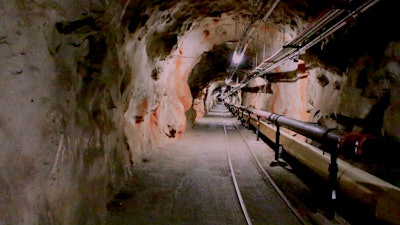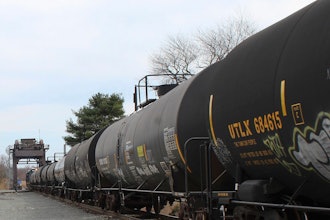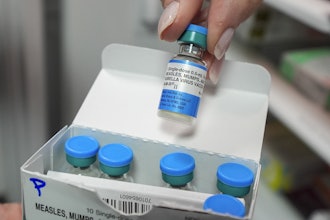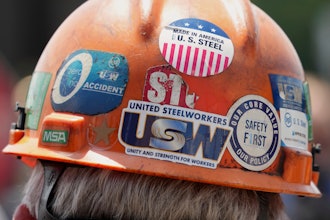
HONOLULU (AP) — The Navy believes that contaminated tap water that went to Hawaii military households came from a one-time spill of jet fuel last month and was not caused by a leak from aging underground fuel storage tanks above an aquifer, a top Navy official told state lawmakers on Friday.
Rear Adm. Blake Converse said Navy officials are very confident that the contamination happened on Nov. 20, when 14,000 gallons (52,995 liters) of jet fuel spilled at the Red Hill Bulk Fuel Storage Facility inside an access tunnel that provides fire suppression and service lines for the complex. The complex supplies fuel for many military planes and ships that operate in the Pacific and its use has been suspended.
The spill was cleaned up, Converse said, but people have complained for weeks of foul-smelling water and some have said they have gone to hospitals because of cramps or vomiting after they drank the water.
Converse said it appears that some of the jet fuel was sent through the Navy’s water distribution system that serves about 93,000 people, including those in military housing.
Converse also told state lawmakers that Navy officials have moved more than 3,000 families to hotels on the island of Oahu and that they will stay there until the problem is solved.
The overall water system and water systems in all homes and facilities that have been impacted will be flushed with clean water and Navy officials said they hope to complete that process by Christmas.
“The Navy is responsible for this crisis. We are taking ownership of the solutions, and we are going to fix it,” Adm. Sam Paparo, commander of the U.S. Pacific Fleet, told the lawmakers.
Before Navy officials divulged the likely cause of the contamination, a U.S. senator called on the Environmental Protection Agency to take the lead in testing to determine whether the Navy's water is safe to drink.
U.S. Sen. Brian Schatz said the EPA should step in after the Navy disputed the Hawaii Department of Health's analysis of fuel contamination at a well for drinking water to the Joint Base Pearl Harbor-Hickam's water system.
Testing last week showed the presence of petroleum in water that comes from a well near the underground fuel tank complex that has been the source of multiple fuel leaks over the years.
The state health department said the Navy reported diesel fuel levels more than double Hawaii health limits for drinking water in samples collected at another one of the Navy's shafts that provide water to the drinking water system.
But the Navy said the sample didn't come directly from the Navy's well and that Navy officials don't believe it indicated contamination.
After receiving results Friday from a California lab, the health department said samples collected from a ground water source called the Red Hill shaft had tested positive on Sunday for "high levels' of gasoline.
Schatz wants the EPA to be the lead agency handling collection, testing, analysis and public communication of the water crisis.
“We can't afford another day of the Navy and the state and county agencies disagreeing on the basic question of whether the drinking water is safe,” he said in a statement Thursday.
The EPA is not independently testing the water, but is reviewing Navy test results, Julia Giarmoleo, an agency spokesperson, told the Honolulu Star-Advertiser.






















